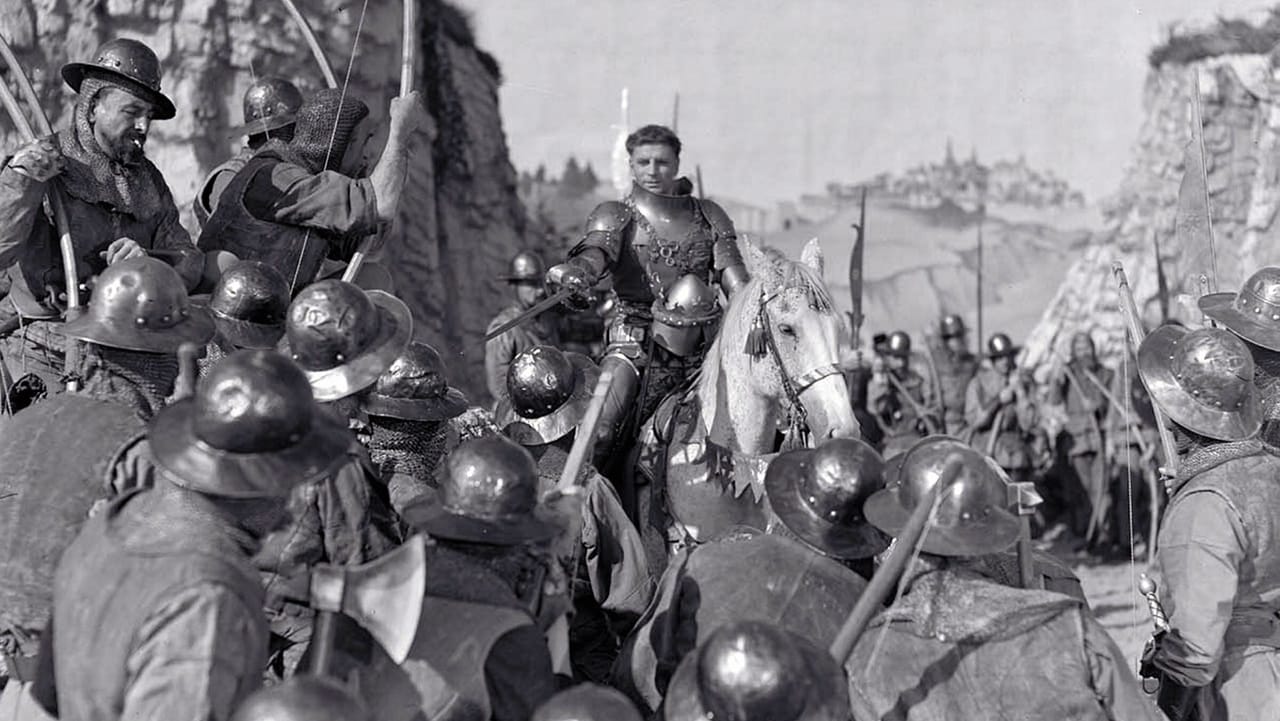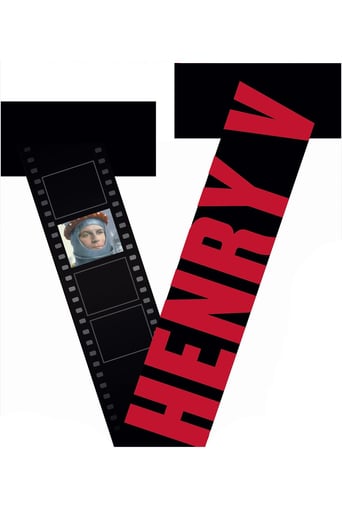

Before Kenneth Branagh there was...Laurence Olivier. Good adaptation of the Shakespeare play. Starts rather oddly, and dourly, by showing making the movie about the play being performed in 1600. Initially put me off, but after a while the unnecessary play-within-a-movie scenario disappears, and you have just a movie, as it should be.Once it gets rolling, it is great. Olivier, in his directorial debut, shows a deft hand at direction. The battle scenes are well- staged and very vivid. Pacing is good.Olivier is superb in the lead role. It is no wonder that he is regarded as the greatest Shakespearean actor, if not one of the greatest actors of all time. The gravitas and feeling he brings to the role are immense. You would think that he IS a king, mouthing the words for the first time, rather than reciting Shakespeare's complex dialogue.Good supporting cast.If I had to choose between the 1989 Kenneth Branagh version and this 1944 version, I would go with Branagh's version, by a smidgen. The 1989 version is edgier, moves more quickly and freely, and doesn't have the clunky start. Also, as you would imagine, the production values are better in the 1989 version (no model castles etc). For Shakespearean acting at its finest, however, you can never go past (Sir) Laurence Olivier.
... View MoreSir Laurence Olivier's Henry V (1944) is very much a movie of its time. Filmed during WW II, the film is an overt example of pro-British propaganda. I don't see that as a problem, because Shakespeare wrote the play in a way that would glorify Britain and its king.So, director Olivier had no problem directing himself as a strong, warlike king, who rules a strong warlike country. More important is what Olivier didn't portray--the king's flaws and the horrific nature of war. Mud played a major role in the British victory at Agincourt. However, in this film, all we see is a brief shot of a horse prancing through a puddle. The combat scenes aren't very graphic. (If your husband or son is serving in combat, you don't want to be reminded of the horrors he is undergoing.)Olivier begins the film as if we were seeing it at the Globe theatre in London. Then he opens the film up, and we get "realistic" outdoor scenes. (For safety, the location scenes were filmed in neutral Ireland.). At the end, we return to the Globe to remind us that we are seeing a play. This is an interesting device; I thought it worked.The movie was shot in color, which looks garish today. However, even garish color is better than b/w in my opinion, because the heraldic colors meant so much within the chivalric code of the times.We saw this film on a classroom-sized large screen. Some of the pageantry will be lost on a small screen, but it will work well enough. This is an enjoyable and important movie. It's worth seeking out and viewing.
... View MoreThis is a good film for the over 25 crowd. It is always good to see Shakespeare come to life as it did in this movie. The old English has life and feeling and spirit in this film. The actors did a good job in making the old English work. The sets and costumes looked great. It is amazing that the armor is aluminum painted wool. The movie must have lifted the spirits of the English as they were full into WWII. The movie was made in England during the war and one would never know it. All hail to the spirit of Laurence Olivier as he inspired those to follow him into battle. It must have been a good film for British morale. Thumbs up.
... View MoreLaurence Olivier made this movie during World War II. He wanted it to be a propaganda movie, and unfortunately this is still visible. His Henry is a king and war hero shining in perfect light. All the rough edges and darker points of Shakespeare's original play are left out: We don't see how Bardolph is hanged, Henry doesn't kill his French prisoners in retribution for the attack on his camp, and Pistol is actually looking forward to becoming a pimp and cut-purse in England again. All this makes the movie a bit too simple-minded and one-dimensional.But apart from that, both Olivier's acting and directing are good. Especially the opening is very innovative: It takes place in a theater, the story is presented as a real play. This gives room for comments on Elisabethean theater and interaction with the audience - look for instance how they react whenever Falstaff is mentioned. Unfortunately this angle is lost later on and the movie continues in a more conventional fashion.All in all a classic certainly worth watching, but it won't hurt to check out Kenneth Branagh's version as well for a more balanced view on the original play.
... View More